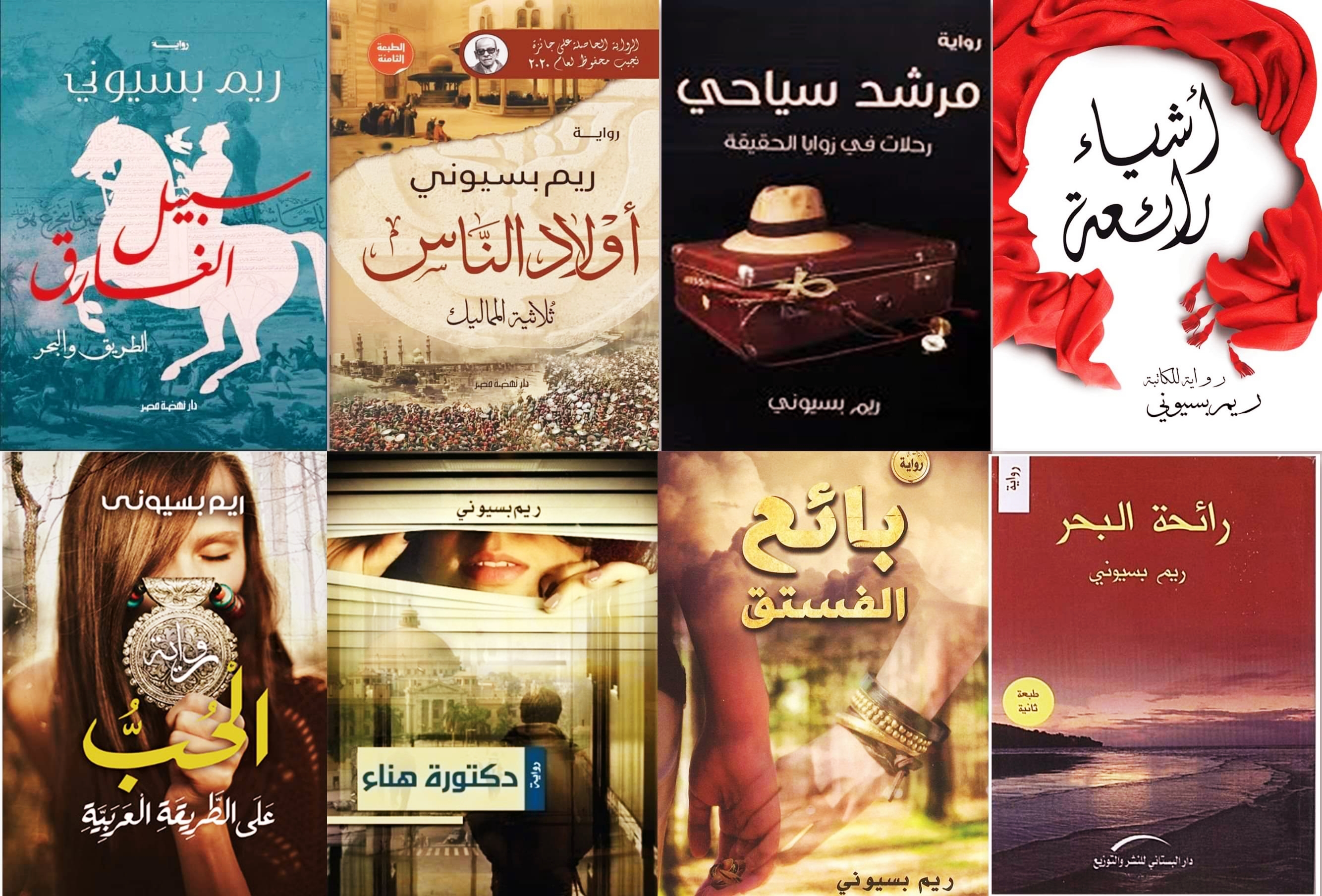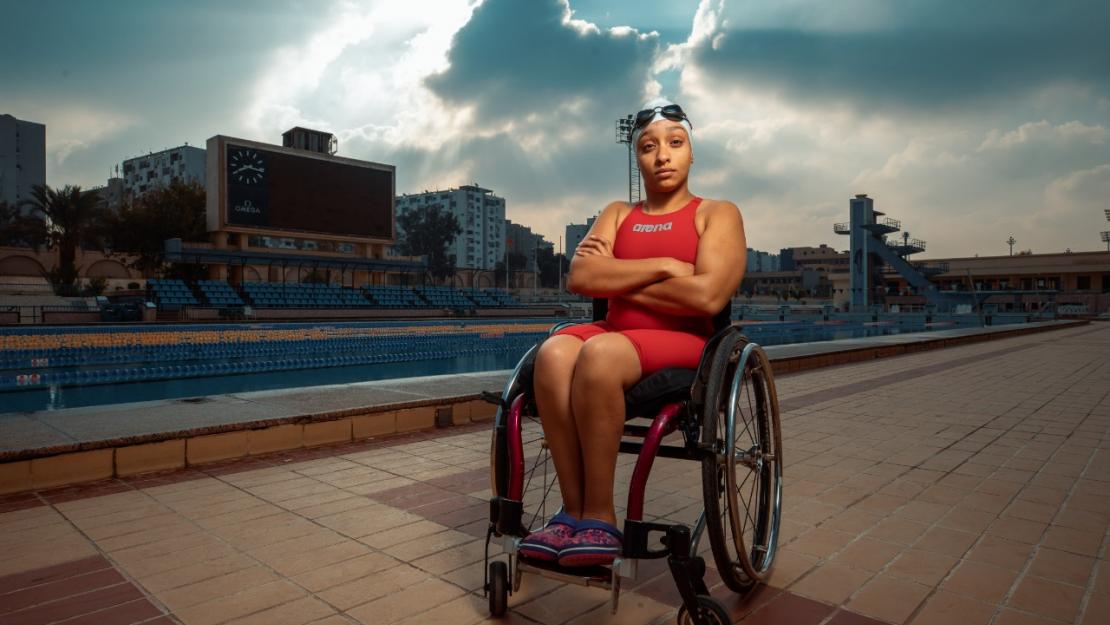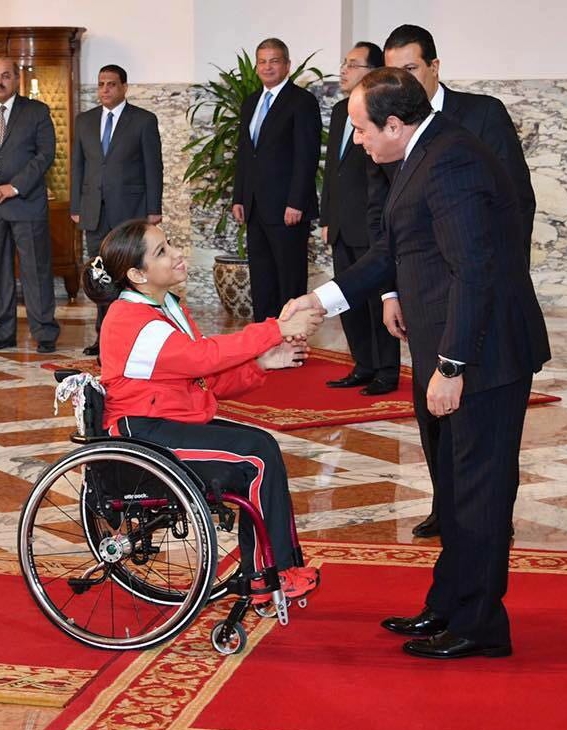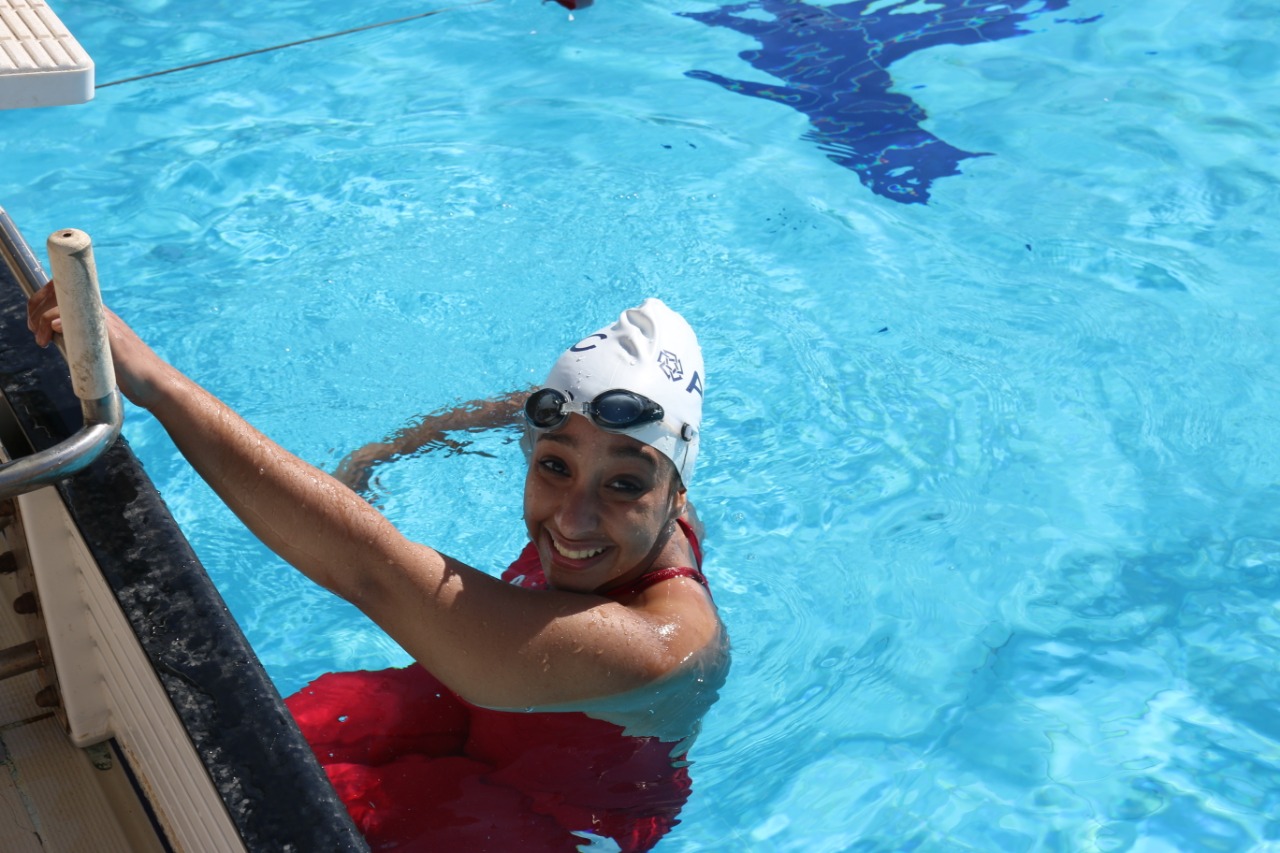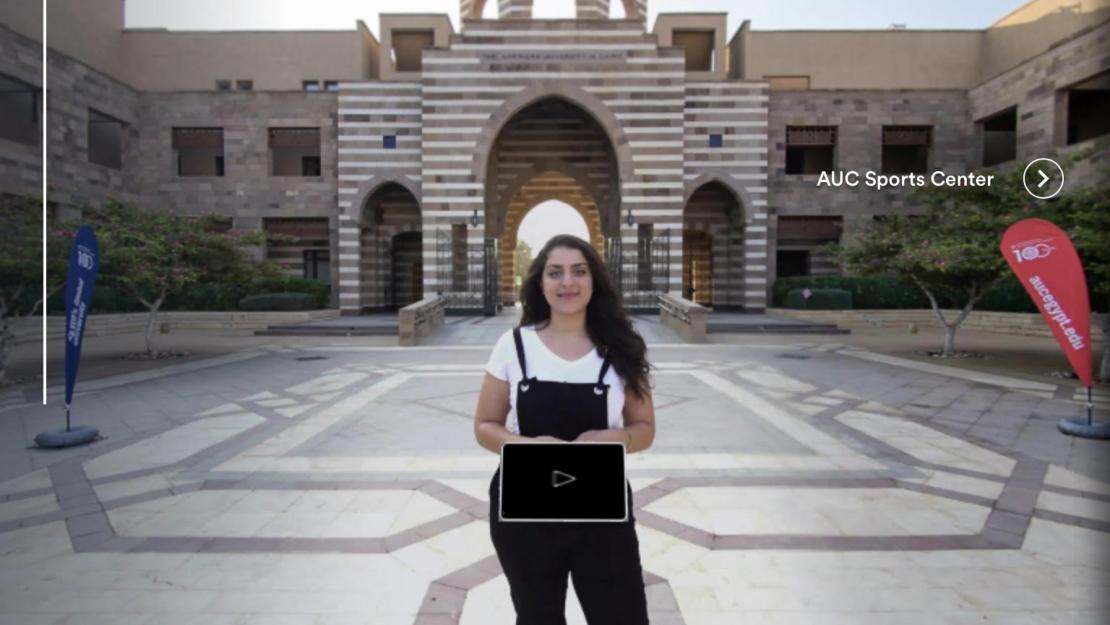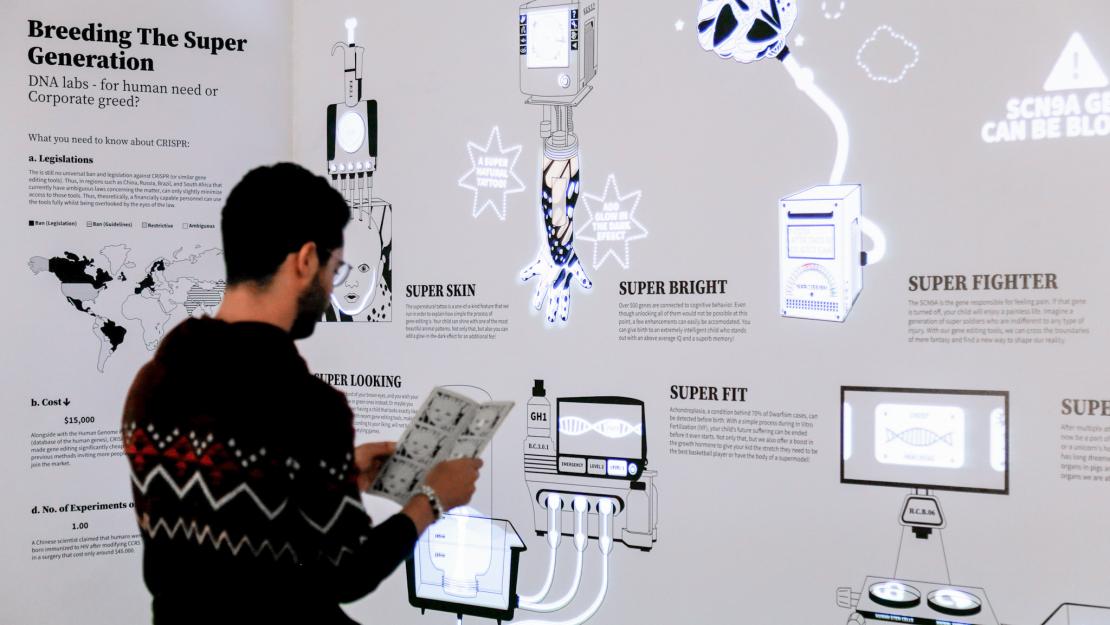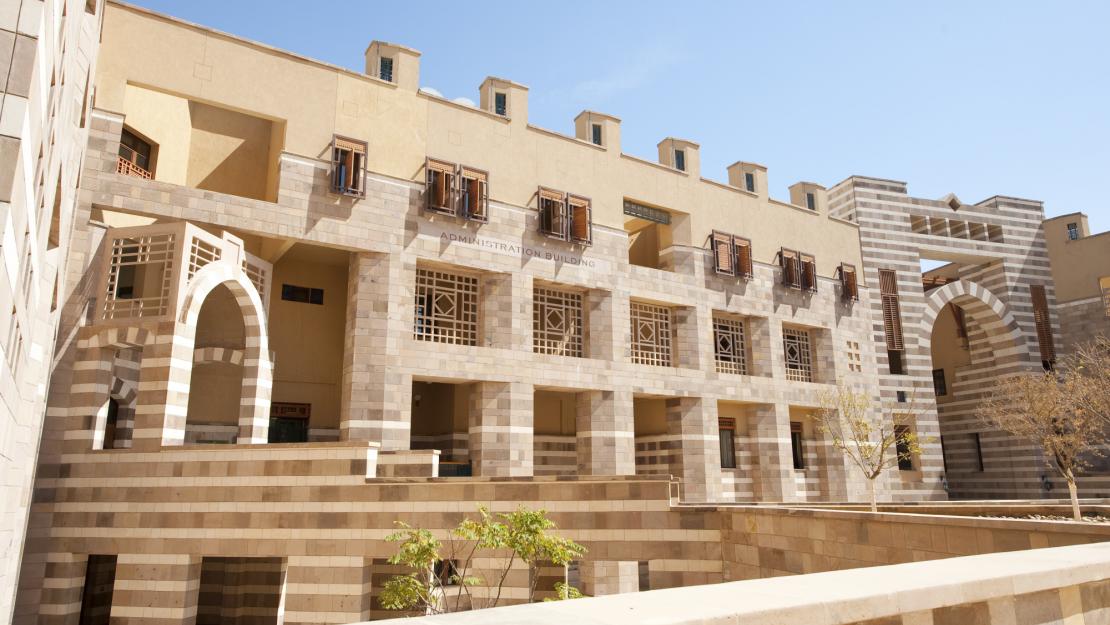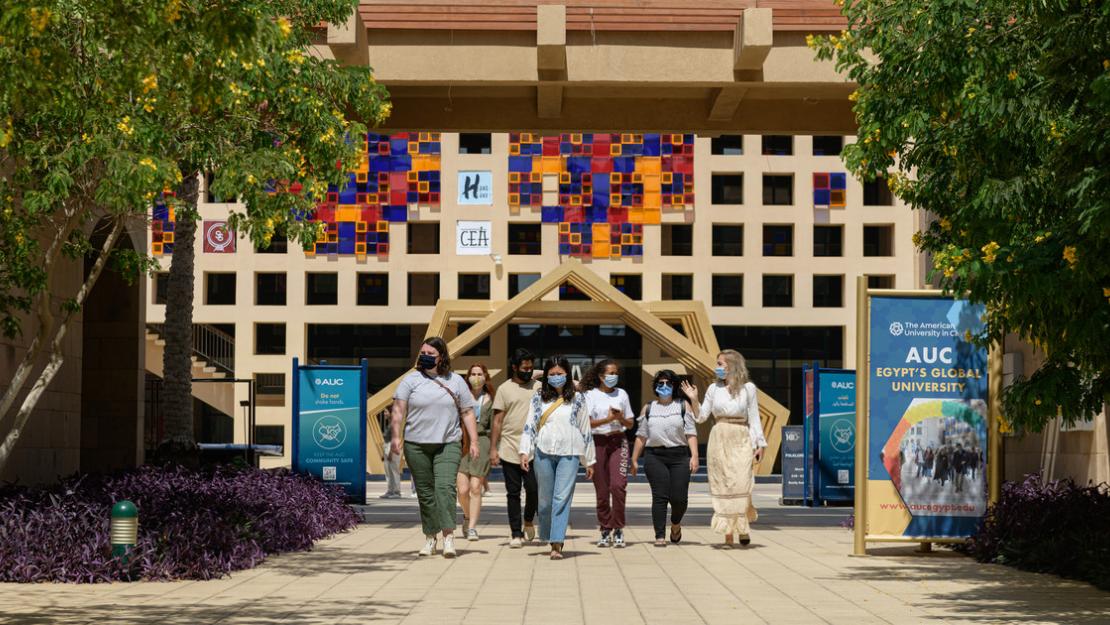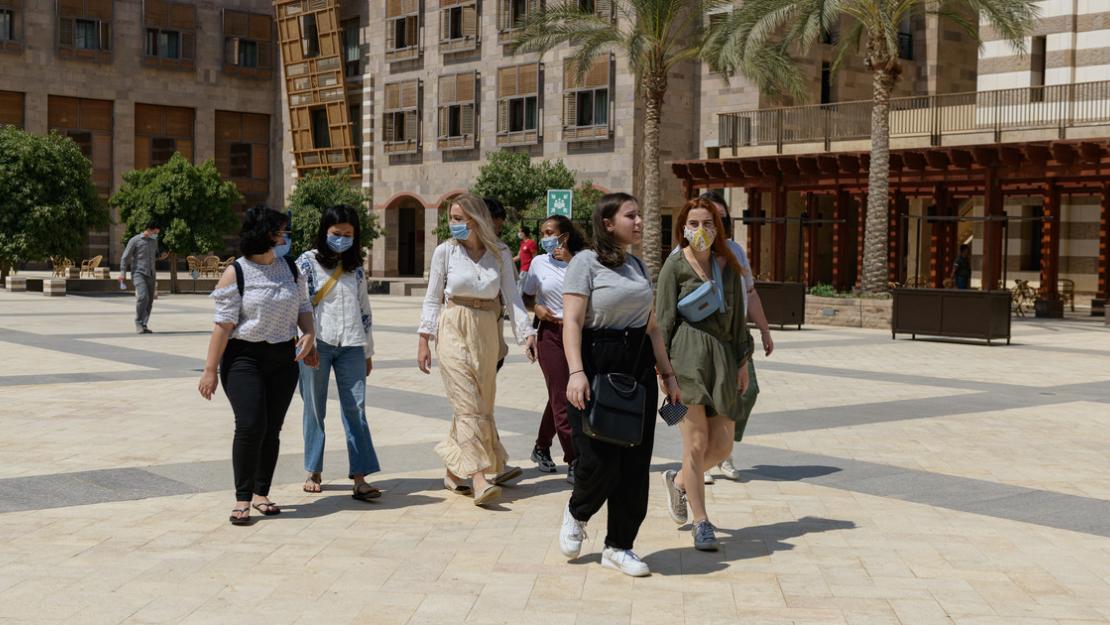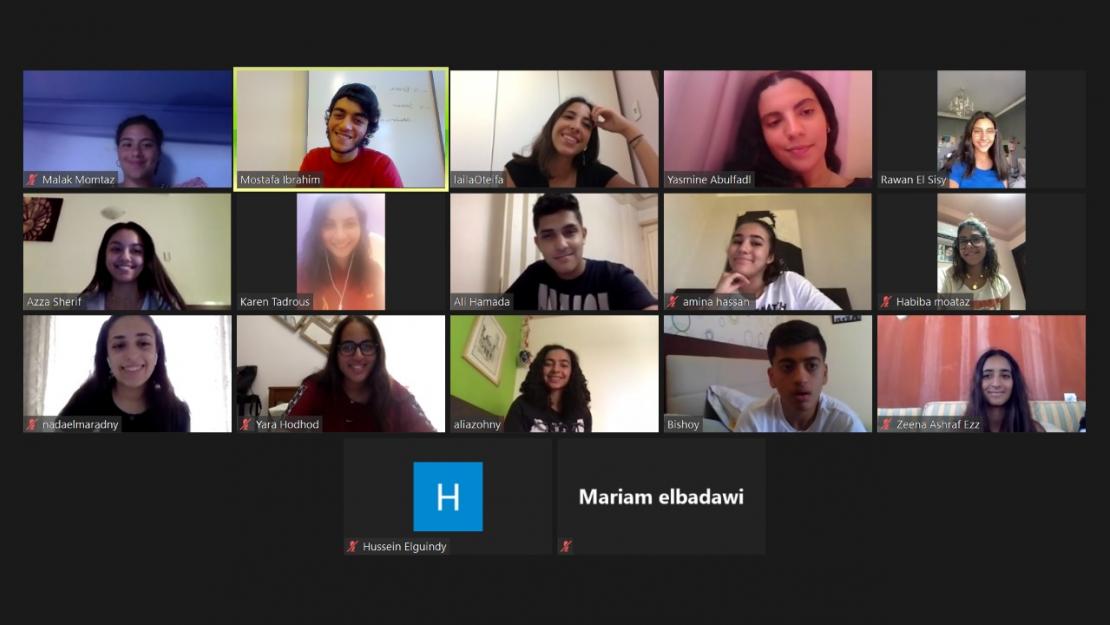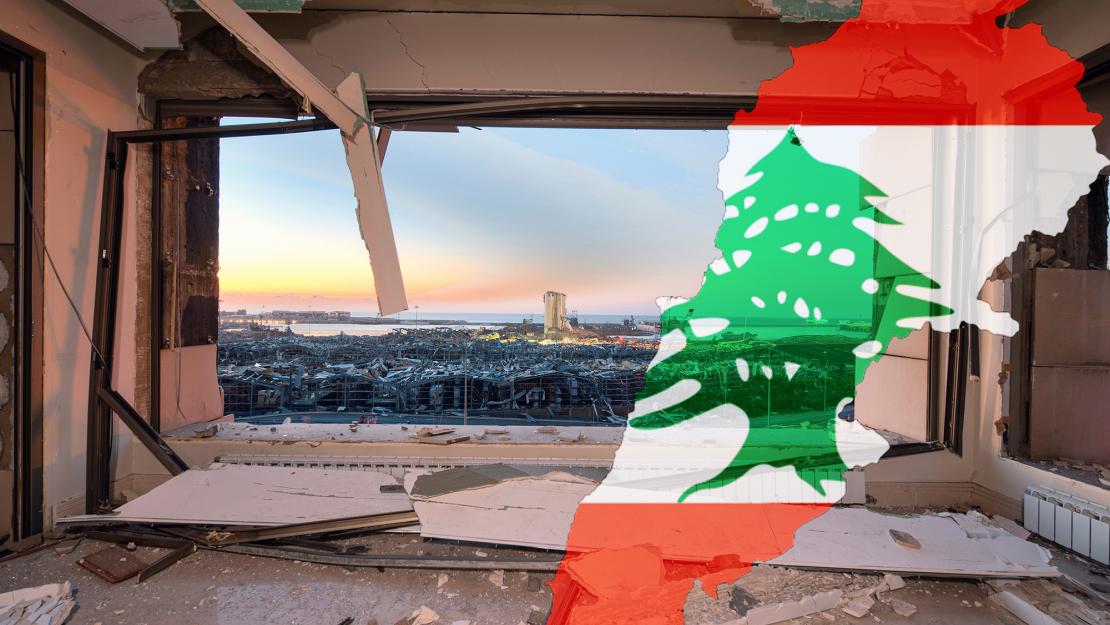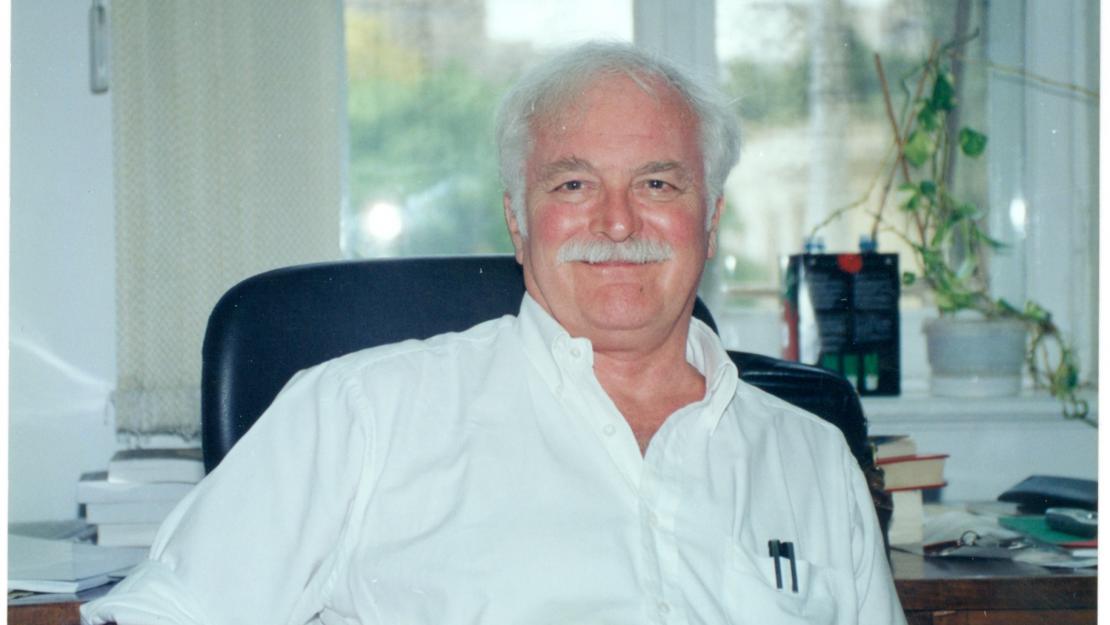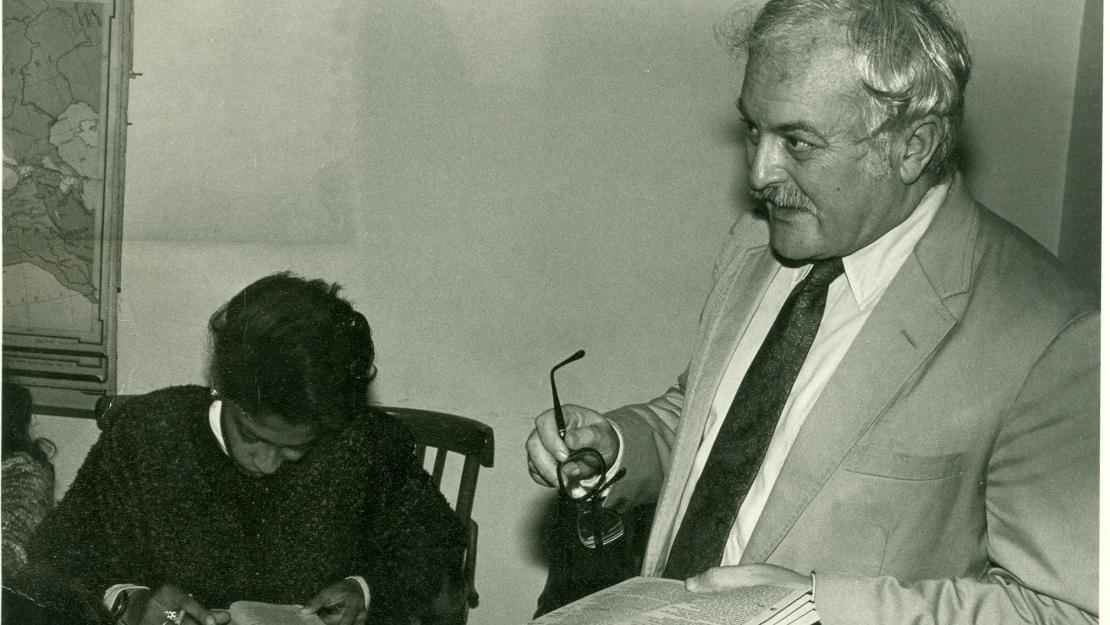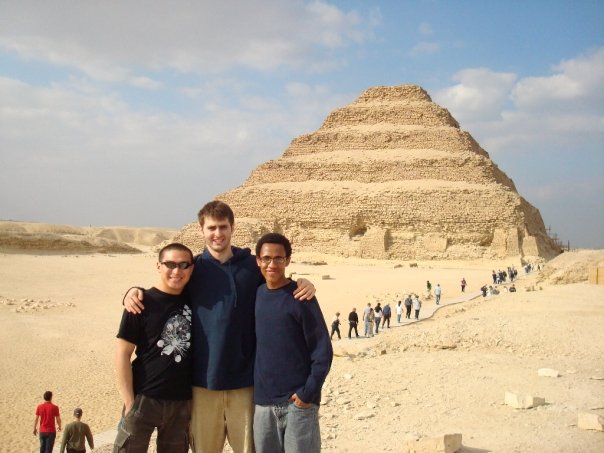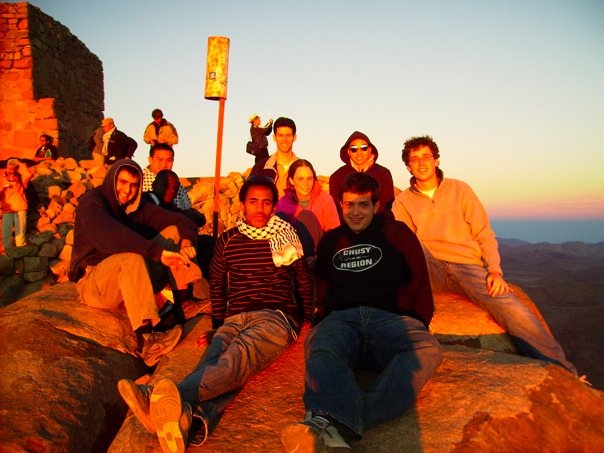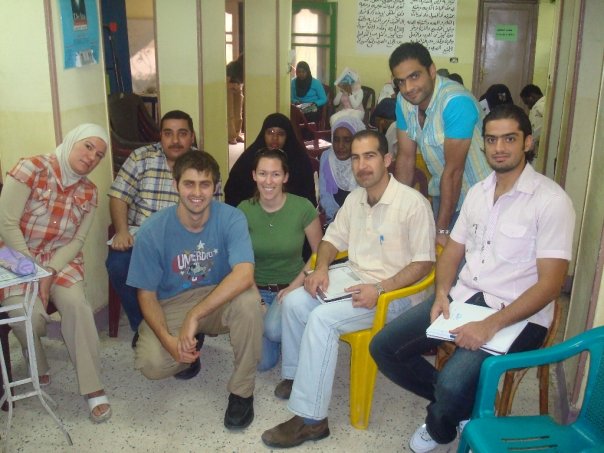Award-Winning Reem Bassiouney: 'Writing About History is Liberating'
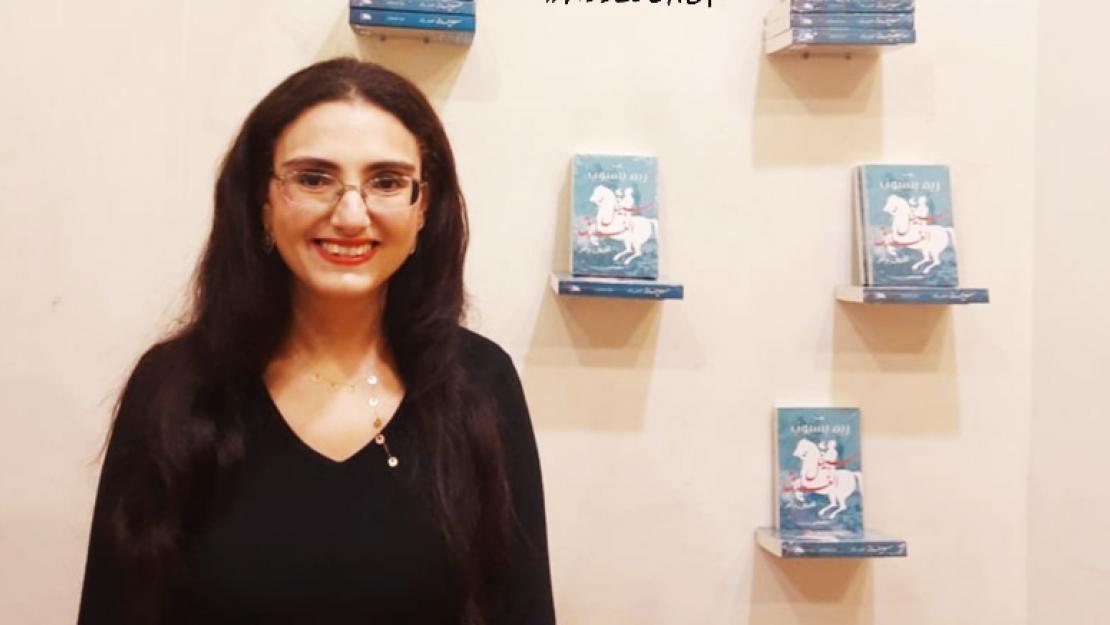
Nahdet Misr Publishing Group recently held a launch event celebrating award-winning novelist and AUC Professor of Applied Linguistics Reem Bassiouney’s new book, Sabeel Al Gharek. With the first edition selling out in only five days and the second edition released shortly after, the book has been achieving substantial success.
Bassiouney attributes the book's success to the different layers of meaning it carries. “The book is historical, philosophical, romantic, Sufi and more. On the surface, the structure can either seem like a love story or a historical one, but as you go deeper, you explore different themes. It’s about history and myths, but also about life in general and the roads we take that affect who we are,” she said.
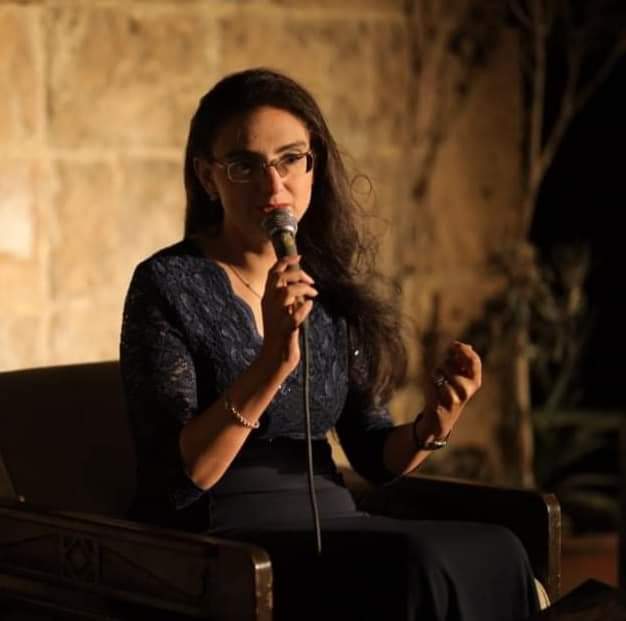
Earlier this year, Bassiouney was awarded the Supreme Council of Culture's 2019-2020 Naguib Mahfouz Award for Best Egyptian Novel for her best-selling book, Sons of the People: The Mamluk Trilogy, exploring the history of the Mamluks in Egypt with a deeper insight into their human experiences.
“Naguib Mahfouz is one of the most inspiring writers. Having the honor of receiving an award with his name is a big recognition that I appreciate very much,” Bassiouney proudly stated.
The award was unexpected for Bassiouney. Nahdet Misr Publishing Group had nominated and presented the novel for the award with her approval, but she got immersed in her day-to-day tasks that she entirely forgot about it.
“Reem Bassiouney is an experienced and professional novelist who mastered linguistics and, accordingly, excelled in writing,” said Dalia Ibrahim ‘93, ’99, CEO of Nahdet Misr Publishing House. “Being a lover of history who’s proud of her Egyptian identity to the utmost extent, she succeeded in presenting wonderful novels in which she merges history and fiction while shedding light on some of the most important historical periods that the country has gone through to enrich the minds of readers and guide them to researching and penetrating history to understand the past, its impact and its close connection with the present and the future.”
Bassiouney explained that Nahdet Misr Publishing House had taken a risk with her at the time of Sons of the People: The Mamluk Trilogy, being a 760-page book. “Our chemistry together is really good. They read very well and always give me a very objective opinion and end up with a reasonable decision,” she said. In light of that, the book has indeed been a best-seller for two years.
“Bassiouney’s books carry a great cultural value that we’re keen to present to our readers so that they can sail with us to new worlds that they didn’t know before to see and understand the present and the future with a more comprehensive perspective,” noted Ibrahim. “Sabeel Al Gharek comes after two years and a half of writing to present us with valuable work once again, and this time, takes us to the depths of the human soul, the dilemma of existence and the human journey in understanding its construction and finding the way. In my opinion, it’s one of the best and deepest novels Bassiouney wrote, diving and sailing us again to different periods of time through a number of overlapping stories that carry within them many existential questions and issues through a wonderful combination of philosophy and mysticism.”
On the choice of history as a genre, Bassiouney expressed that “history is liberating. It gives me much more liberty to merge certain themes than in contemporary writing. It could be just me, but I find it easier when I’m writing about history.” In Sabeel Al Gharek, for example, Bassiouney merges magical realism with mythical history without restraint.
She proceeds to explain that she lets her imagination take the lead while writing a novel, even when history is involved. However, she steers clear of reflecting her own opinions in her writing. “I usually don’t state opinions. I just describe, and the interpretation is up to the reader. I don’t want to prescribe how to live; I’m just describing how life is,” she said.
However, she hopes that history has the same effect on readers as it did on her. “We need to liberate ourselves in the same way I liberated myself while writing. We’re speaking about medieval times, yet we impose their values today,” she expressed. “We need to go back and analyze what they went through to become that way, and accordingly, we can’t live by their values in our modern time.”
Through her historical novels, Bassiouney aims to “connect people with their historical past.”
“Some parts of history are very dark and haven’t been taught at schools, either at all or in the right way. I want people to read more about their history, especially such critical parts,” she clarified. “You can’t understand the present without understanding the past -- it is related to the present in a way.”
Bassiouney has been writing novels since she was 12 years old. She always had a passion for literature, specifically novels. Her experience with teaching language in society through linguistics courses at AUC has tremendously facilitated her writing in many ways.
"Linguistics and literature are very much related in my mind. When you're able to understand the language better and relate it to society, writing becomes easier. Additionally, sociolinguistics taught me not to be judgmental, and that significantly helped me as an author." she reflected. "I also find it refreshing to deal with younger students – I learn a lot from them."
To date, three of Bassouiney's books have also been translated into different languages to extend to a global audience. Her novels are read by almost everyone: Her readers are as young as 15 years old and as old as 90. "If you're writing about the human experience, you can appeal to everyone," she said.
